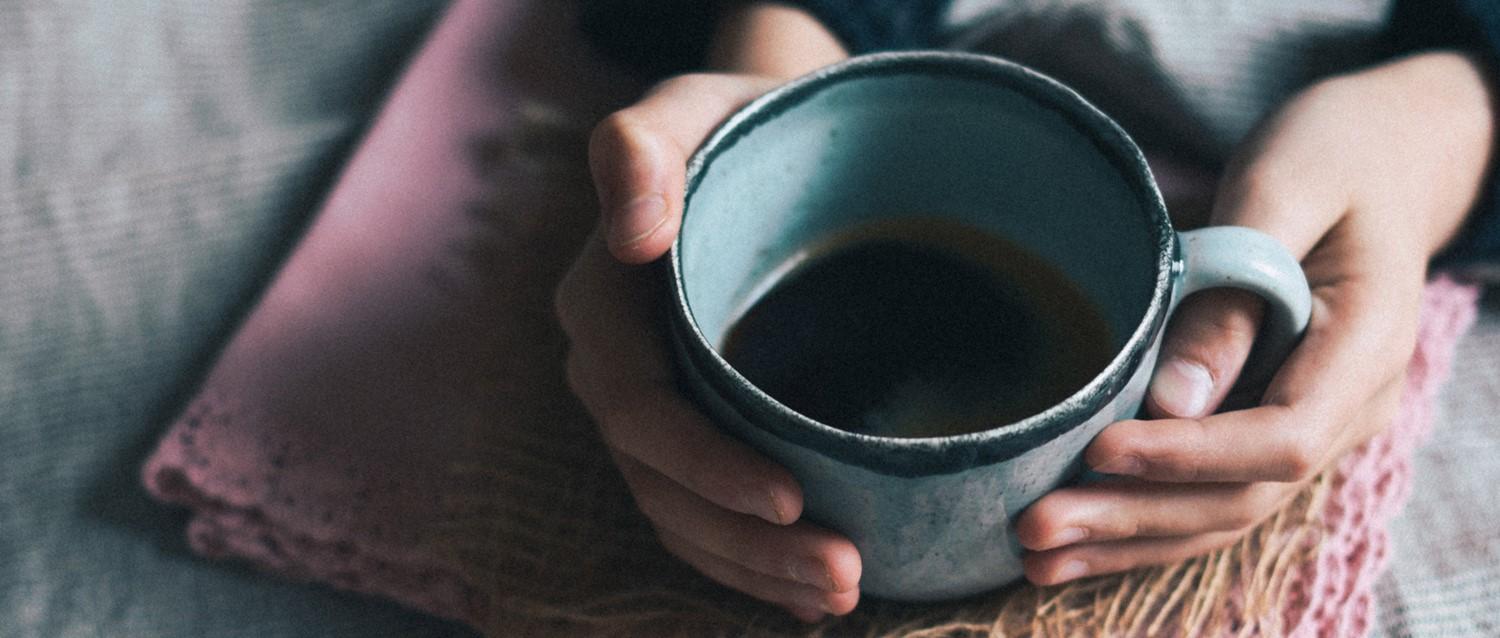
How to look after your mental health this winter
Peer reviewed by Dr Sarah Jarvis MBE, FRCGPLast updated by Georgia GallantLast updated 29 Jan 2019
Meets Patient’s editorial guidelines
- DownloadDownload
- Share
- Language
- Discussion
The first months of the year can be a miserable time. Holiday festivities are over, money is tight and pressure to keep up your resolutions is mounting. This can lead to feelings of anxiety, depression and even failure. For many, these symptoms begin even earlier as the seasons change from autumn to winter.
According to the Royal College of Psychiatrists, around every 3 in 100 people suffer from significant seasonal depression, which can interfere with daily life. We explore why winter leaves so many feeling down and how you can tackle it at home.
In this article:
Continue reading below
Why do we get depressed in winter?
Symptoms of seasonal affective disorder (SAD) typically develop between September and November and continue until early spring, often reaching their peak during December, January and February.
To determine whether you have SAD or non-seasonal depression, it can be useful to record your symptoms over time. If you show none of the common signs of depression during the summer months for two years or more, it is likely that you have SAD.
Dr Mark Winwood, director of Psychological Services for AXA PPP Healthcare, explains: "In non-seasonal depression, people commonly sleep less and eat less. Whereas with SAD, they usually sleep more and eat more as if they are in hibernation."
Dr Preethi Daniel, clinical director at the London Doctors Clinic, lists other common symptoms of SAD as persistent low mood, lack of energy, difficulty concentrating or achieving deadlines, lack of interest or pleasure in usual activities and feelings of worthlessness compared to others who are coping fine.
It is thought that the lack of sunlight, shorter days and cold temperatures bring on the so-called 'winter blues' in several ways. Levels of melatonin (the hormone that controls your body's sleep-wake cycle) and the brain chemical serotonin (which plays a major role in mood) are affected; we are unable to produce enough vitamin D (the 'sunshine vitamin') naturally and our sleep cycle is triggered early by the dark evenings.
There is also a theory that SAD can be triggered by traumatic or upsetting past events that occurred around the same time, although there are not many studies investigating this further.
If you are experiencing a persistent low mood and that does not subside when it reaches the summer months, you could be suffering from depression. Make an appointment with your GP to talk things through and figure out the best course of treatment.
Common treatments for SAD include talking therapies such as cognitive behavioural therapy (CBT), antidepressants and light therapy.
Look into the light
Your circadian rhythm, also known as the circadian clock or sleep/wake cycle, is a "24-hour internal clock running in the background of your brain", telling you when it's time to wake up and go to sleep, according to the National Sleep Foundation.
"Natural daylight supports our circadian clock and helps us sleep at night," reveals Winwood.
So if you're going to work and coming home when it's dark, you're more likely to feel depressed from lack of sunlight and a disrupted sleep pattern.
A way to combat sluggish mornings and low mood is light therapy. This involves using a lamp or light box that is designed to replicate sunlight.
"By mimicking natural sunlight, your body is tricked into feeling good and energetic," says Daniel.
One study found light therapy to cause a significant reduction in depression symptoms when treating SAD and had similar effectiveness to antidepressants.
For light therapy to be an effective treatment for SAD, you are advised to use your light for around 30 minutes a day, preferably in the morning, and will usually feel the effects after 3-4 days. It's important to use the light continually throughout the winter for it to be beneficial.
My own experiences with SAD light therapy have been very positive and it has become a key part of my morning routine while I get ready. I use a lamp from Lumie, who supply to the NHS.
Although light therapy can be an effective treatment, the cost of a lamp can be a barrier for many. Here are a few self-help tips you can try before splashing out.
Continue reading below
Get your vitamin D
It's well-known that sunshine provides our bodies with vitamin D, as much as 90% of it!
"On cloudy days, we make less of it and deplete our stores quickly. This not only affects our mood, but it also causes general aches and pains," notes Daniel.
Taking a daily vitamin D supplement during the winter can also aid good bone health and combat tiredness. Low levels have also been linked to an increased risk of heart disease and even multiple sclerosis.
As well as taking supplements, ask to sit by a window in the office if possible, and open the curtains at home even on cloudy days. Daniel also suggests making time for a daily walk in your lunch hour.
Find a routine
It may sound obvious, but having a routine keeps you focused. It can be hard to get up in the mornings when it's cold, so perhaps time the heating to come on for when you need to get up, or lay your clothes out the night before.
Winter often leaves us wanting to sleep most of the time, except when it comes to bedtime. A good night's sleep is essential for optimal mental and physical well-being, insists Winwood. Try these tips on improving your sleep behaviour.
Make self-care part of your daily routine. If you're not feeling yourself, even 5-10 minutes a day of 'me time' can be invaluable.
Continue reading below
Exercise
If you're able to, try to exercise outside. It may be cold but any extra exposure to daylight will help lift your mood.
"Just 20 minutes of brisk walking, jogging, cycling or housework that raises your heart rate can really help you feel more energetic and happier," assures Winwood.
Winter might just be the perfect time to start training for your first 10k.
If you're not up for a frosty jog around the park, join the gym or try an exercise class with a friend. That way you're accountable to each other and it makes it much more fun. If the gym isn't for you, try making it fun in other ways - buy a hula hoop, try a team sport or push yourself to try something new. The This Girl Can website has loads of interesting options that are for everyone.
Balanced diet, balanced mind
We all know the benefits of a well-balanced diet, and arguably in winter, it's even more important to keep us going. Daniel suggests aiming to eat a variety of food groups, especially those that release energy slowly, so you won't feel as sluggish. If you are reaching for carbs, try to choose wholegrains as they are higher in fibre.
She also advises limiting your sugar intake and not relying on caffeine too much. If you're eating a balanced diet you should have sufficient energy.
Winwood agrees, as stimulants including alcohol can: "disrupt our body clocks and impact the quality of our sleep."
Additionally, Daniel advises eating foods rich in folic acid, such as leafy greens.
"There is some evidence we use it to make serotonin (a 'feelgood' hormone)," she reveals.
Find what works for you
Often the hardest thing can be to just stand up and get going. The longer you spend sitting down telling yourself you don't want to do something, the longer you're able to convince yourself not to.
Something that helps me is to imagine that I have an autopilot setting by counting down from 10. Once you reach zero you get on with your task without thinking about it - whether that's throwing the covers off in the morning, going to the gym or getting out of the shower. This simple trick helps me waste less time procrastinating or talking myself out of something, meaning I'm less anxious and rushed later on.
Time to talk
Winwood says that resisting the urge to stay in and hibernate alone is key to good mental health. Your friends may even be going through the same thing as you, and it can help to talk about your feelings.
"Make dates for social time with friends and family - always have something to look forward to," he says.
If you don't have an immediate support network to lean on, there are plenty of mental health charities, such as Mind, which are ready and waiting to help.
Patient picks for Mental wellbeing

Mental health
5 benefits of reading
If you have a neglected list of must-read books that you never seem to get around to reading, you're not alone. The hectic bustle of life often means that many adults don't make time for books. Yet, the many health benefits of reading books make this a healthy habit you may want to prioritise.
by Lawrence Higgins

Mental health
How to look after your mental health at university
Despite all of the benefits of newfound independence, studying for a future career and meeting new people, university can take its toll on student mental health.
by Milly Evans
Article history
The information on this page is peer reviewed by qualified clinicians.
29 Jan 2019 | Latest version

Ask, share, connect.
Browse discussions, ask questions, and share experiences across hundreds of health topics.

Feeling unwell?
Assess your symptoms online for free